
Email: pakiki@ndu.edu.lb
Phone: +961 9 208719
I am a computer scientist specializing in Software Engineering and Human-Computer Interaction. I hold a Ph.D. in Computing from The Open University in the United Kingdom.
I am an Associate Professor and Chairperson of
the Department of
Computer Science at Notre Dame University – Louaize.
My work involves
research,
teaching, and
services.
I have a diverse education and set of skills, which I applied in both academia and industry to various projects.
For more information check out my resume.
Recent Research Themes
Full List of Research ThemesEnd-User Development for IoT and Robotics
2016 – 2020
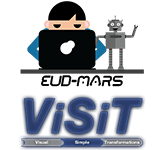
End-user development challenges include configuring internet-of-things (IoT) devices and services to work together and programming robots for different purposes. ViSiT empowers end-users to wire IoT devices and services while EUD-MARS provides them with a visual approach to developing model-driven adaptive robotics software.
Find out more!Changes and Contributions in Cooperative Systems Modeling
2019 – 2020
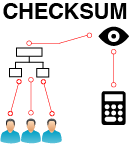
In cooperative systems modeling scenarios, it is useful to identify contributions and changes performed by individuals and teams. CHECKSUM monitors the cooperative work done on models and maintains an immutable changelog. GEMM enables CHECKSUM to support various types of models through a unified representation.
Find out more!Model-Driven Contextual Help for Adaptive User Interfaces
2017 – 2018
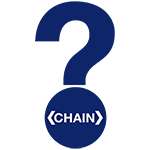
UI adaptation can cause discrepancies between the UI and static help materials (e.g., screenshots). CHAIN is an approach for developing model-driven contextual help that maintains its usefulness across UI adaptations. The CHAINXML language and its visual notation express and depict help models for CHAIN.
Find out more!Analyzing Source Code to Improve Software Quality
2018
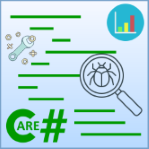
Source code can be analyzed to understand how software developers apply certain principles. I developed a software called CARE# to analyze the source code of C# programs and determine how software developers use and misuse implicit and explicit typing. CARE# can also automatically refactor source code to improve the developers’ typing choices.
Find out more!Adaptive Model-Driven User Interfaces
2011 – 2016
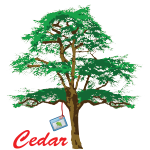
Software applications face many scenarios where end-users with different roles require variable versions of the UI. Catering to this variability, by providing multiple user interface versions, would enhance usability. For this purpose, I contributed a reference architecture (Cedar Architecture), a UI adaptation technique (RBUIS), and an IDE (Cedar Studio).
Find out more!Forecasting ERP Implementation Outcome
2010
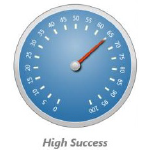
The implmentation of ERP systems is very complex and faces a high risk of failure. I devises a systematic framework that reduces the risk of ERP implementation failures to protect businesses from possible financial losses.
Find out more!Recent Research Videos
Full List of Research VideosChanges and Contributions in Cooperative Systems Modeling
End-User Development for Internet of Things (IoT)
Engineering Adaptive UIs for Enterprise Applications
Recent Publications
Full List of PublicationsCHECKSUM: tracking changes and measuring contributions in cooperative systems modeling
Software and Systems Modeling, Springer
EUD-MARS: End-user development of model-driven adaptive robotics software systems
Science of Computer Programming, Elsevier, 200: 102534
Generating Contextual Help for User Interfaces from Software Requirements
IET Software, IET, 13(1), 75-85
To var or not to var: How do C# Developers Use and Misuse Implicit and Explicit Typing?
Software Quality Journal, Springer, 27(3), 1175-1207
CHAIN: Developing Model-Driven Contextual Help for Adaptive User Interfaces
Journal of Systems and Software, Elsevier, 135, pp. 165-190
Visual Simple Transformations: Empowering End-Users to Wire Internet of Things Objects
ACM Transactions on Computer-Human Interaction, ACM, 24(2), pp. 10:1-10:43
Engineering Adaptive Model-Driven User Interfaces
IEEE Transactions on Software Engineering, IEEE, 42(12), pp. 1118–1147
Adaptive Model-Driven User Interface Development Systems
ACM Computing Surveys, ACM, 47(1), pp. 64:1–64:33
Integrating Adaptive User Interface Capabilities in Enterprise Applications
36th International Conference on Software Engineering, Hyderabad, India, ACM/IEEE, pp. 712–723
RBUIS: Simplifying Enterprise Application User Interfaces through Engineering Role-Based Adaptive Behavior
Best Paper Award
5th ACM SIGCHI Symposium on Engineering Interactive Computing Systems, London, United Kingdom, ACM, pp. 3–12
Crowdsourcing User Interface Adaptations for Minimizing the Bloat in Enterprise Applications
5th ACM SIGCHI Symposium on Engineering Interactive Computing Systems, London, United Kingdom, ACM, pp. 121–126
Cedar Studio: An IDE Supporting Adaptive Model-Driven User Interfaces for Enterprise Applications
5th ACM SIGCHI Symposium on Engineering Interactive Computing Systems, London, United Kingdom, ACM, pp. 139–144
Engineering Adaptive User Interfaces for Enterprise Applications
5th ACM SIGCHI Symposium on Engineering Interactive Computing Systems, London, United Kingdom, ACM, pp. 151–154
Preserving Designer Input on Concrete User Interfaces Using Constraints While Maintaining Adaptive Behavior
2nd Workshop on Context-Aware Adaptation of Service Front-Ends, London, United Kingdom, CEUR-WS.org, pp. 9–16